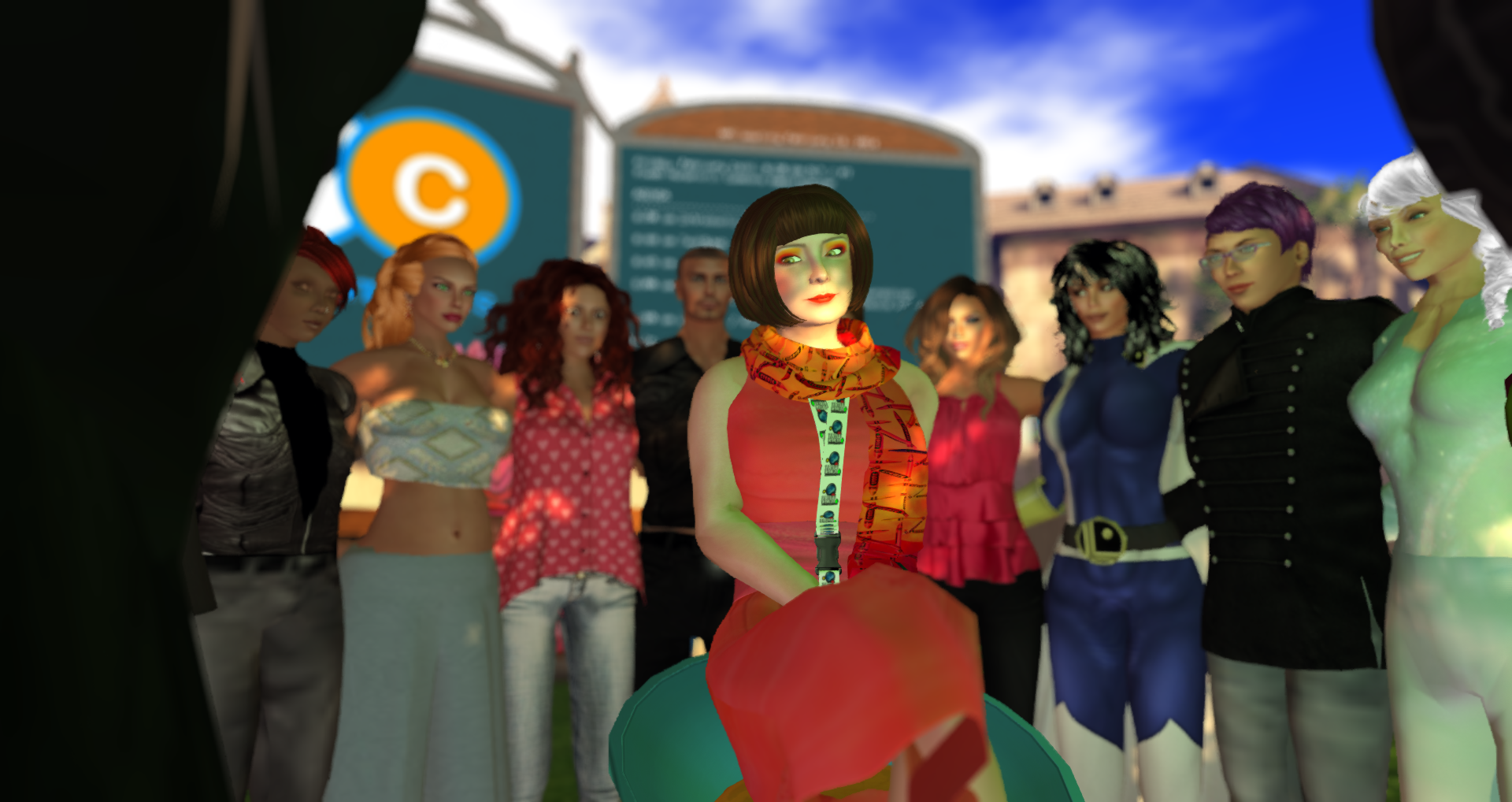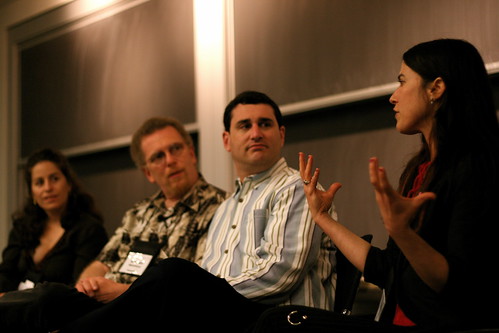I just got word that the American Civil Liberties Union is sponsoring a rally in Washington DC today to call for the restoration of habeas corpus and and end to torture in Guantanamo Bay. For those who can’t make it there, you can still participate by teleporting into the Second Life Capitol Hill and join other virtual demonstrators in a show of support for the rule of law and due process. Entitled ‘A Day of Action to Restore Law and Justice,’ there will be a live webcast of the real life rally into SL, including speakers Senators Ben Cardin, Tom Harkin and Patrick Leahy; Representatives John Conyers, Dennis Kucinich and Jerrold Nadler; Anthony D. Romero, Executive Director of the ACLU; Larry Cox, Executive Director of Amnesty International; and David Keene, Chairman of the American Conservative Union.
Head to Mojo Fields to get a tee-shirt, protest sign and other info (teleport SLURL) and to the ACLU website for more information on the rally, both real and virtual, keep reading.
UPDATE 6/26/07, 2:30PM: I published some pics and a chat log of the discussion with US Rep Jerry Nadler (D-NY) on my blog.
Help Restore Law & Justice – ACLU Rally in Second Life to Restore Habeas Corpus and All Our Rights
This week, thousands of Americans are storming Washington, D.C. for a ‘Day of Action to Restore Law and Justice.’ Activists from the ACLU, Amnesty International and dozens of other organizations will rally on
Capitol Hill, to call on Congress to restore habeas corpus, fix the Military Commissions Act, and restore all our constitutional rights.
For the first time ever, the ACLU is holding a rally here in Second Life, including a live webcast of the events in Washington, D.C., opportunities to take action by calling Congress and speaking out in
your local community, and more information about the Military Commissions Act and how you can get involved in the fight to restore our rights!
What: Day of Action to Restore Law and Justice Rally in Second Life
When: June 26, 2007 11:00 AM to 1:30 PM EST
Where: Gather to get t-shirts and signs at MoJo Fields (86 88 519), then TP to the Washington Mall for the rally and a live video of the events
in Washington, D.C.
Please Register Today: www.aclu.org/slsignup
Sign the Habeas Corpus Petition: https://secure.aclu.org/site/SPageServer?pagename=june_petition
Confirmed speakers at the live rally in Washington, D.C. include Senators Ben Cardin, Tom Harkin and Patrick Leahy; Representatives John Conyers, Dennis Kucinich and Jerrold Nadler; Anthony D. Romero,
Executive Director of the ACLU; Larry Cox, Executive Director of Amnesty International; David Keene, Chairman of the American Conservative Union; host Greg Proops of ‘Whose Line Is It Anyway?’ and many others! To learn more about the June 26 Day of Action, go to www.juneaction.org
Written by: rikomatic



